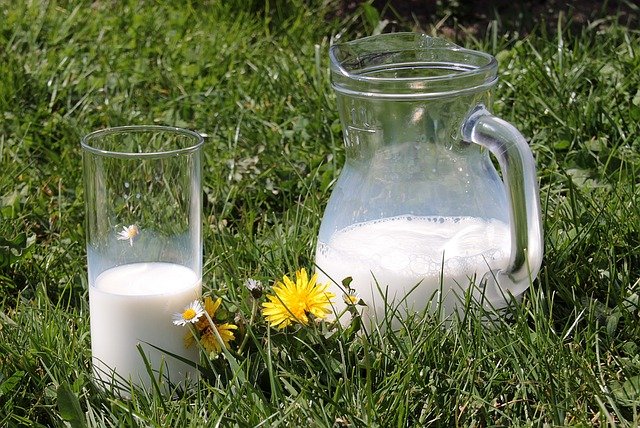Since 2011, an estimated 3 million milk consumers each year in the UK have benefitted from research from the University of Reading which has helped reduce saturated fatty acids (SFAs) in milk and dairy products. This research manipulated dairy cows’ diets to produce milk which has a reduced saturated fat and increased unsaturated fat content.
Saturated fat is bad news for health, and diets with a high content of SFA are thought to increase the risk of cardiovascular disease. Therefore agencies across the globe which are concerned with food and with health, including Public Health England (PHE), recommend to reduce or limit saturated fat intake.
The research team found that by making changes to dairy cow diet, milk with a lower SFA content can be produced whilst also reducing the environmental impact of milk production, thereby having potential beneficial effects on both human health and the environment.
This work demonstrated that including processed rapeseeds (and other oil-rich products) in the diet of dairy cows reduced potentially harmful SFA typically from 70 to 55-60% total fatty acids, whilst increasing more beneficial cis-monounsaturated fatty acids from 20 to 33%. The change in diet had the added effect of reducing the amount of methane produced by the cattle, and this coupled with the use of oilseeds which are grown extensively in the UK rather than imported feed stocks such as palm oil, helped to reduce the environmental impact of the milk-production process.
A number of multi-centre human studies on the exchange of dietary SFA with monounsaturated fatty acids have been performed and are ongoing. The results suggest that the milk being produced with lower SFA may indeed be potentially healthier compared to other alternatives.
IMPACT
Leading UK retailer, Marks and Spencer (M&S), has used this research to benefit its customers by supporting its suppliers in providing a new diet regime for their dairy cows, leading to the launch of a new low saturated fat M&S branded milk in October 2011.
The launch of this ‘healthier’ milk product is thought to have had a number of benefits including improved diets and reduced associated health risks (such as heart disease) for M&S customers; reduction in the use of palm oil in dairy cow diets; and reduction of harmful greenhouse gas emissions by those cows benefiting from the new dietary regime.
Producers of this milk have benefitted from increased payment contracts to support the new diet, and the dairy industry has benefitted from the development of new rapid techniques to measure fatty acids in milk. The launch of this milk has also resulted in M&S reporting increased sales, and enhanced reputation in terms of quality and corporate social responsibility.
FUNDING
This research was funded through various routes. The main body of work was funded by a grant from the BBSRC, and previous work leading to this was funded by the European Commission.
Research led by Professor Ian Given and Professor Julie Lovegrove
First published: June 2015

